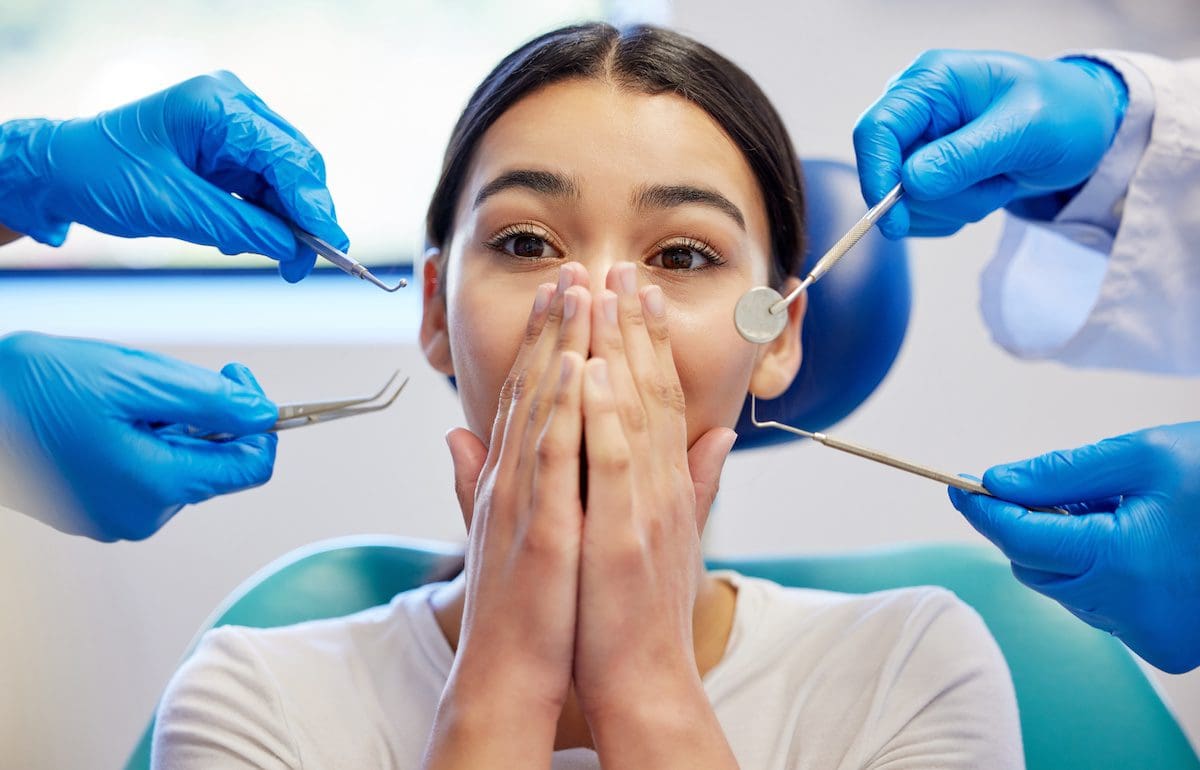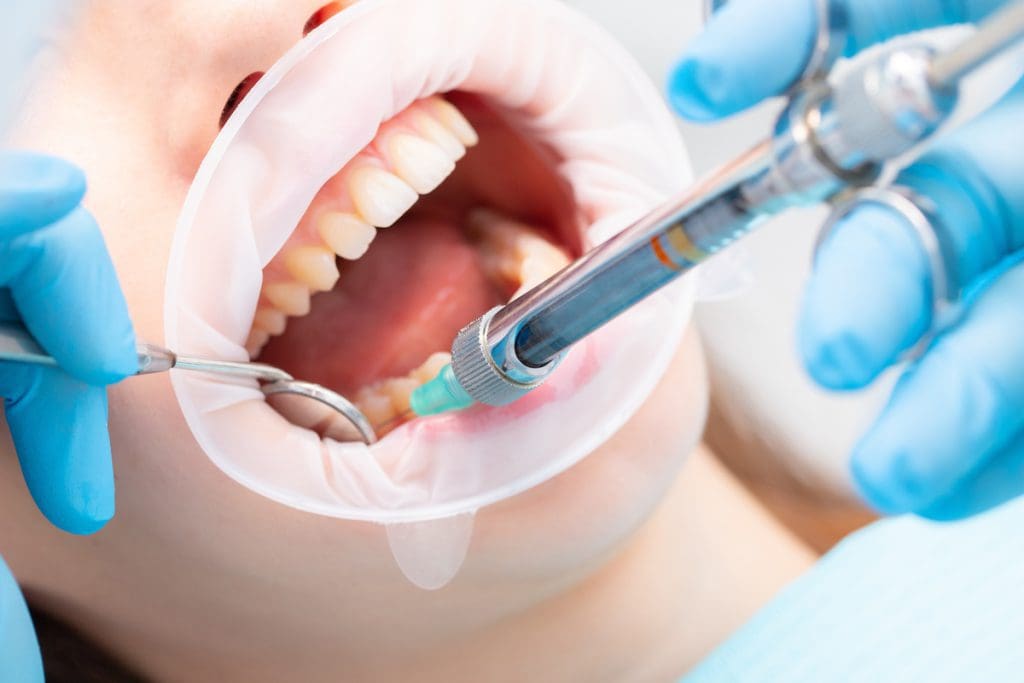Full Disclosure: Clicking on these links could mean a tiny commission for me, at no extra cost to you.
Many associate the dentist’s office with shining white teeth and healthy gums. But for too many other people, the mere thought of entering one brings up a silent scream of anxiety. That, in fact, is way more common than many would think. According to a study, dental fear affects nearly 36% of the population, with 12% of them suffering from extreme dental fear 1. Though many can easily dismiss dental phobia as irrational, dental fear is a real paralyzing condition with serious consequences for oral and general health. On the bright side, as will be discussed, understanding its roots and keeping a lookout for coping ways might just help regain that smile. The following discussion walks you through the causes of dental fear, its impact on health, and some practical strategies for managing and getting over your fears.
The Root of Dental Fear
The fear of the dentist, or dental phobia, can stem from a variety of sources. Unpleasant past experiences, like painful procedures or insensitive dentists, can leave lasting psychological trauma. In some cases, patients may also feel embarrassed about the state of their oral health and misinterpret the dentist’s professional evaluation as judgment. This combination of fear and shame can create a significant barrier to seeking necessary dental care.
But for some, the primary trigger may be the fear of pain in general. Perhaps just the anticipation of discomfort during even a trivial cleaning is enough to send shivers down your backbone. The sights, sounds, and smells of the dental office can also be overwhelming. The whirring of the different types of drills or the pungent smell of disinfectant can contribute to a heightened state of anxiety.
Understanding the root cause of your fear, whether it’s pain, needles, or the dental office itself, is the first step to overcoming dental phobia. Once you identify your triggers, you can develop strategies to manage them and approach dental care with less apprehension.
Dealing With Dental Fear
Once you understand what your dental fears are, the next step is learning how to deal with them. Here are some great tips to follow:
Finding a Dentist Who Understands
If you’re struggling with dental fear, it’s essential to find an understanding, patient dentist willing to accommodate your needs. Ask for recommendations from friends, family, or your doctor. You can also look for dentists who specialize in treating anxious patients or offer sedation dentistry techniques. You can search online for dentists like Bowden Family Dental and assess how clinics prioritize patients’ comfort and trust.
During your initial consultation, be honest about your fears. A good dentist will listen attentively, explain procedures thoroughly, and offer reassurance. They may also suggest relaxation techniques or modifications to the treatment plan to make your experience more comfortable.
But remember, you’re not alone in this. While it’s common to experience dental fear, dentists are trained to help patients manage their anxiety. By building a trusting relationship with them, you can feel more at ease during your appointments and receive the care you need.
Coping Mechanisms and Relaxation Techniques
There are several strategies you can use to manage dental anxiety before, during, and after your appointment.
- Deep breathing: Every time you visit your dentist, take slow, deep breaths, inhaling through your nose and exhaling through your mouth. This can help slow your heart rate and reduce feelings of panic.
- Mindfulness: Focus on the present moment, paying attention to your senses and surroundings. This can help distract you from your fear and promote relaxation.
- Distraction: Bring headphones and listen to calming music or an audiobook during your appointment. You can also try squeezing a stress ball or focusing on a calming image.
If your fear is more severe, your dentist may recommend relaxation techniques such as progressive muscle relaxation or guided imagery. These techniques involve tensing and relaxing different muscle groups or visualizing a peaceful scene to induce a state of calm.
Ready to Breathe Through Dental Anxiety?
Struggling with anxiety and stress? Discover the InnaPeace program for scientifically-backed techniques to help you manage stress, reduce anxiety, and find mental clarity. Start your journey to a calmer, more.
Sedation Dentistry
For some individuals, dental fear is so intense that it prevents them from seeking even basic dental care. In such cases, sedation dentistry can be a lifeline. Sedation involves using medication to induce a state of relaxation or sleepiness, making dental procedures more tolerable.
Nitrous oxide, also known as laughing gas, is a common option that provides mild relaxation. Studies show strong support for its use, with 80% favoring its inclusion in treatment options. Your dentist can recommend the most suitable type of sedation based on your individual needs and medical history. 2
Sedation dentistry is generally safe and effective when administered by a qualified professional. However, it’s important to discuss the potential risks and side effects with your dentist beforehand.
Building Trust and Positive Experiences
Overcoming dental fear is a journey, not a destination. It takes time, patience, and a willingness to confront your fears head-on. So, start by taking small steps, such as scheduling a cleaning or a simple check-up.
Then, celebrate each milestone, no matter how small. Each positive experience you have at the dentist’s office can help build your confidence and reduce your anxiety. Over time, you’ll find that the dentist’s chair is no longer a place of fear but a stepping stone to a healthier, happier you.
The Impact of Dental Fear on Oral Health
Avoiding the dentist out of fear may seem like a solution, but it’s a dangerous one. Dental fear often leads to neglected oral hygiene, which can result in serious health problems. Research shows that about 80% of adults in developed countries experience unease before dental treatment, while 5% avoid it totally. 3
Neglecting oral health can also contribute to other health conditions such as heart disease, stroke, and diabetes. Bacteria from untreated oral infections can enter the bloodstream and spread to other parts of the body, causing inflammation and damage.
That said, overcoming dental fear isn’t just about having a brighter smile; it’s about protecting your overall health and well-being. By seeking regular dental care, you can prevent minor problems from escalating into major ones and safeguard your overall health.
Conclusion
Dental fear may seem like an obstacle, but it’s not invincible. Millions of people have successfully conquered their dental fears and gone on to enjoy a lifetime of good oral health. Take that first step today, and discover the freedom that comes with a fearless smile.
References:- “COVID-19: Another Cause of Dental Anxiety?”, Source: https://www.ncbi.nlm.nih.gov/pmc/articles/PMC9083218/#:~:text=Dentistry%20has%20always%20been%20related%20to%20anxiety%20and%20pain.%20Dental%20fear%20and%20anxiety%20are%20important%20characteristics%20that%20contribute%20to%20the%20avoidance%20of%20dental%20treatment%20%5B1%2C2%5D.%20Dental%20fear%20or%20anxiety%20affects%20approximately%2036%25%20of%20the%20population%2C%20of%20which%20approximately%2012%25%20have%20extreme%20fear%20%5B3%2C4%5D.
- “Use of nitrous oxide and oxygen for conscious sedation to manage pain and anxiety”, Source: https://pubmed.ncbi.nlm.nih.gov/17949537/
- “Impact of Dental Anxiety on Dental Care Routine and Oral-Health-Related Quality of Life in a German Adult Population—A Cross-Sectional Study”, Source: https://www.ncbi.nlm.nih.gov/pmc/articles/PMC10455740/#:~:text=Even%20today%2C%20approximately,%2C18%5D.










